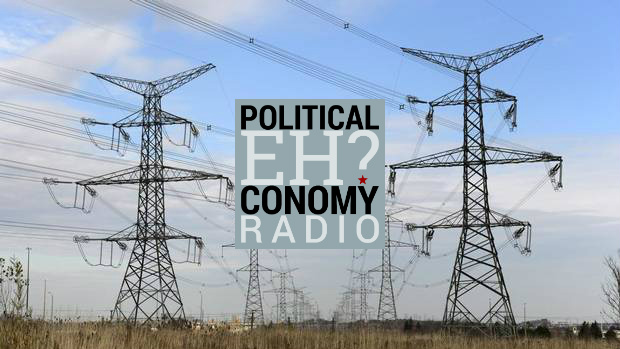Podcast: Play in new window | Download
Subscribe: Apple Podcasts | Android | Email | Google Podcasts | RSS | More
Two guests today: Kevin Skerrett on the changing way pensions function today and Sheila Block the impending privatization of Hydro One in Ontario. Sadly, the two are linked: large pension funds are increasingly active in privatizations. My first guest, Kevin Skerrett, is a pension researcher at the Canadian Union of Public Employees. Don’t let the word pensions scare you off, this is a conversation that gets to the heart of how workers relate to the market and to each other in a changing neoliberal economy. See this article by Kevin and the linked videos of a speaker series for more.
From pensions, the episode moves to privatization with my second guest, Sheila Block. Sheila is the Senior Economist at the Ontario office of the Canadian Centre for Policy Alternatives. We spoke about the impending privatization of Hydro One in Ontario, a cynical and financially senseless sell-off of an important public asset. Sheila’s recent article on the topic is here.
